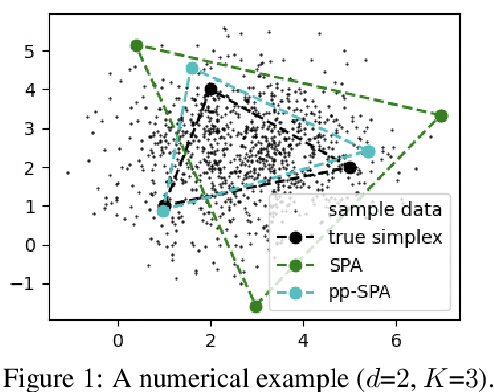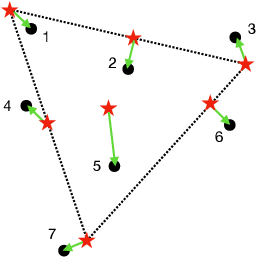Jingming Wang
Fitting networks with a cancellation trick
Feb 23, 2025Abstract:The degree-corrected block model (DCBM), latent space model (LSM), and $\beta$-model are all popular network models. We combine their modeling ideas and propose the logit-DCBM as a new model. Similar as the $\beta$-model and LSM, the logit-DCBM contains nonlinear factors, where fitting the parameters is a challenging open problem. We resolve this problem by introducing a cancellation trick. We also propose R-SCORE as a recursive community detection algorithm, where in each iteration, we first use the idea above to update our parameter estimation, and then use the results to remove the nonlinear factors in the logit-DCBM so the renormalized model approximately satisfies a low-rank model, just like the DCBM. Our numerical study suggests that R-SCORE significantly improves over existing spectral approaches in many cases. Also, theoretically, we show that the Hamming error rate of R-SCORE is faster than that of SCORE in a specific sparse region, and is at least as fast outside this region.
Improved Algorithm and Bounds for Successive Projection
Mar 16, 2024



Abstract:Given a $K$-vertex simplex in a $d$-dimensional space, suppose we measure $n$ points on the simplex with noise (hence, some of the observed points fall outside the simplex). Vertex hunting is the problem of estimating the $K$ vertices of the simplex. A popular vertex hunting algorithm is successive projection algorithm (SPA). However, SPA is observed to perform unsatisfactorily under strong noise or outliers. We propose pseudo-point SPA (pp-SPA). It uses a projection step and a denoise step to generate pseudo-points and feed them into SPA for vertex hunting. We derive error bounds for pp-SPA, leveraging on extreme value theory of (possibly) high-dimensional random vectors. The results suggest that pp-SPA has faster rates and better numerical performances than SPA. Our analysis includes an improved non-asymptotic bound for the original SPA, which is of independent interest.
 Add to Chrome
Add to Chrome Add to Firefox
Add to Firefox Add to Edge
Add to Edge